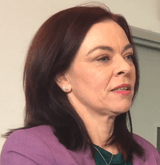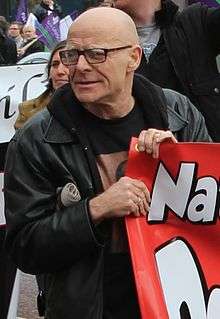Next Northern Ireland Assembly election
The next Northern Ireland Assembly election is expected to elect 90 members to the Northern Ireland Assembly. It will be the seventh assembly election since the assembly was established in 1998.
| |||||||||||||||||||||||||||||||||||||||||||||||||||||||||||||||||||||||||||
All 90 seats to the Northern Ireland Assembly 46 seats needed for a majority | |||||||||||||||||||||||||||||||||||||||||||||||||||||||||||||||||||||||||||
|---|---|---|---|---|---|---|---|---|---|---|---|---|---|---|---|---|---|---|---|---|---|---|---|---|---|---|---|---|---|---|---|---|---|---|---|---|---|---|---|---|---|---|---|---|---|---|---|---|---|---|---|---|---|---|---|---|---|---|---|---|---|---|---|---|---|---|---|---|---|---|---|---|---|---|---|
| |||||||||||||||||||||||||||||||||||||||||||||||||||||||||||||||||||||||||||
| |||||||||||||||||||||||||||||||||||||||||||||||||||||||||||||||||||||||||||
Eight parties had MLAs in the sixth assembly: the Democratic Unionist Party (DUP), led by former First Minister Arlene Foster; Sinn Féin, led by Michelle O'Neill; the Ulster Unionist Party (UUP), led by Robin Swann; the Social Democratic and Labour Party (SDLP), led by Colum Eastwood; Alliance, led by Naomi Long; the Greens, led by Steven Agnew; People Before Profit (PBP), who have a collective leadership; and Traditional Unionist Voice (TUV), led by Jim Allister.
Background
In May 2013, Theresa Villiers, Secretary of State for Northern Ireland, announced the next Assembly election would be postponed to May 2016, and would be held at fixed intervals of five years thereafter.[3] Section 7 of the Northern Ireland (Miscellaneous Provisions) Act 2014 specifies that elections will be held on the first Thursday in May on the fifth calendar year following that in which its predecessor was elected,[4] which would be 5 May 2022. However, there are several circumstances in which the Assembly can be dissolved before the date scheduled by virtue of section 31(1) of the Northern Ireland Act 1998.
After the 2017 assembly election, Sinn Féin stated that it would not return to a power-sharing arrangement with the Democratic Unionist Party without significant changes in the party's approach, including Foster not becoming First Minister until an investigation into the Renewable Heat Incentive scandal was complete.[5] A deadline of 27 March was set for the parties to form an executive. The deadline passed and Secretary of State for Northern Ireland James Brokenshire gave the political parties more time to reach a coalition agreement.[6] Negotiations were paused over Easter.[7]
On 18 April 2017, Prime Minister Theresa May called for a general election to be held on the 8 June 2017. A new deadline to form an executive was set for 29 June.[8] The Conservative Party lost its parliamentary majority and sought a confidence and supply agreement with the DUP to remain in government. The DUP and the Conservatives reached an agreement on 26 June.[9]
The deadline to form an executive passed with no resolution. Brokenshire then extended the negotiation time.[10] Brokenshire resigned as Northern Ireland secretary in January 2018 on medical grounds, and was succeeded by Karen Bradley.[11]
The European Parliament election in May 2019 saw the Alliance Party take the third MEP place from the Ulster Unionists.
Julian Smith succeeded Bradley on 24 July 2019. The law required an election to be called in August 2019 if no resolution was found. None was found, but the UK government created a new deadline of 13 January 2020.[12]
DUP support for the Conservative government broke down with disagreements over the government's Brexit plans. The Conservative government sought a new election, held in December 2019, which they won with a large majority. In Northern Ireland, for the first time, traditional Irish nationalist parties won more seats than traditional unionist parties. Both the SDLP and Alliance returned to the House of Commons, while both the DUP and Sinn Féin saw vote share declines of more than 5%.
A DUP/Sinn Fein executive was re-established on 10 January 2020, forestalling an immediate new election.
Opinion polls
| Pollster/client(s) | Date(s) conducted |
Sample size |
DUP | SF | UUP | SDLP | Alliance | TUV | Green | PBP | Con | Other | Lead |
|---|---|---|---|---|---|---|---|---|---|---|---|---|---|
| 2019 general election | 12 Dec 2019 | – | 30.6% | 22.8% | 11.7% | 14.9% | 16.8% | – | 0.2% | 0.9% | 0.7% | 1.5% | 7.8% |
| Steve Aiken becomes leader of the Ulster Unionist Party | |||||||||||||
| European Parliament election[13] | 23 May 2019 | – | 21.8% | 22.2% | 9.3% | 13.7% | 18.5% | 10.8% | 2.2% | – | 0.12% | 1.5% | 0.4% |
| Northern Ireland local elections[14] | 2 May 2019 | – | 24.1% | 23.2% | 14.1% | 12.0% | 11.5% | 2.2% | 2.1% | 1.4% | 0.4% | 5.6% | 0.9% |
| Clare Bailey becomes leader of the Green Party in Northern Ireland[15] | |||||||||||||
| LucidTalk/Northern Slant | 23–26 Feb 2018 | 2,079 | 33.6% | 32.4% | 10.3% | 8.6% | 8.0% | 2.3% | 1.9% | 1.7% | 0.2% | 1.5% | 1.2% |
| LucidTalk/GUE/NGL | 1–4 Dec 2017 | 2,079 | 33.7% | 32.8% | 8.9% | 8.6% | 7.9% | 1.1% | 2.2% | 1.1% | 0.2% | 3.5% | 0.9% |
| LucidTalk | 8–11 Sep 2017 | 2,080 | 35.5% | 31.2% | 9.6% | 9.4% | 8.6% | 1.3% | 1.7% | 1.5% | 0.2% | 1.1% | 4.3% |
| 2017 general election | 8 Jun 2017 | – | 36.0% | 29.4% | 10.3% | 11.7% | 7.9% | 0.4% | 0.9% | 0.7% | 0.5% | 2.2% | 6.6% |
| Robin Swann becomes leader of the Ulster Unionist Party[16] | |||||||||||||
| 2017 Northern Ireland Assembly election | 2 Mar 2017 | – | 28.1% | 27.9% | 12.9% | 11.9% | 9.1% | 2.6% | 2.3% | 1.8% | 0.3% | 3.3% | 0.2% |
Footnotes
- Sinn Féin's president is Mary Lou McDonald but she is not a member of the Assembly, Michelle O'Neill is the party's vice president and deputy First Minister of Northern Ireland.
- Sinn Féin's "party leader in the North".[1]
- Colum Eastwood previously sat as an MLA for Foyle but resigned his seat after being elected as the MP for the same constituency at the 2019 United Kingdom general election.
- Eamonn McCann previously sat as an MLA for Foyle but failed to be re-elected in the 2017 Assembly Election.
References
- Breen, Suzanne (23 January 2017). "Sinn Féin's Michelle O'Neill poised to be selected as party's new leader in Northern Ireland". Irish Independent. Retrieved 2 December 2019.
- "View registration - The Electoral Commission". search.electoralcommission.org.uk.
- "Northern Ireland Assembly elections put back to 2016". BBC News Online. 10 May 2013. Retrieved 11 May 2013.
- "Northern Ireland (Miscellaneous Provisions) Act 2014". Legislation.gov.uk. Retrieved 7 May 2016.
- "'No revolt within DUP,' says Foster". 6 March 2017. Archived from the original on 6 March 2017 – via www.bbc.co.uk.
- Kroet, Cynthia (27 March 2017). "No Snap Election in Northern Ireland After Talks Collapse". Politico. Retrieved 27 March 2017.
- "Stormont talks: Direct rule or election 'if no deal'". 12 April 2017 – via www.bbc.co.uk.
- "Stormont power-sharing talks deadline set for 29 June". 21 April 2017. Archived from the original on 21 April 2017 – via www.bbc.co.uk.
- "Conservatives agree pact with DUP to support May government". BBC News. 26 June 2017. Retrieved 26 June 2017.
- "Stormont talks: Brokenshire to 'reflect' amid ongoing deadlock". 4 July 2017. Archived from the original on 4 July 2017 – via www.bbc.co.uk.
- "NI Secretary James Brokenshire resigns". 8 January 2018 – via www.bbc.co.uk.
- "Talks to end NI devolution deadlock resume". 2 January 2020 – via www.bbc.co.uk.
- "European elections 2019: Polls take place across the UK". BBC News. 23 May 2019. Retrieved 28 May 2019.
- "Northern Ireland local elections 2019". BBC News. Retrieved 23 May 2019.
- "Clare Bailey selected as new leader of Green Party in NI". BBC News. 21 November 2018. Retrieved 2 June 2019.
- "Ulster Unionist Party confirm Robin Swann as new leader". BBC News. 8 April 2017. Retrieved 2 June 2019.
_2.jpg)
.jpg)
.png)
.jpg)

.jpg)


